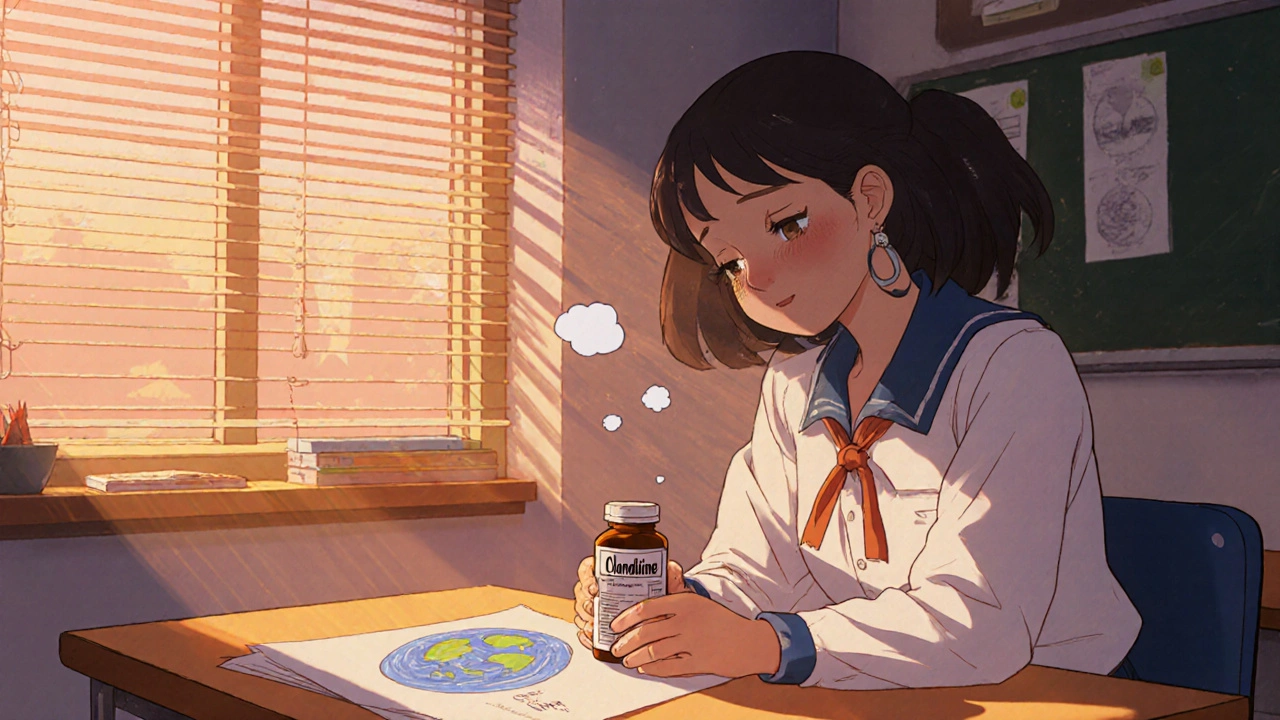
Clonidine is a medication many people take for high blood pressure or ADHD, but it’s not the only option. If you’re on Clonidine and wondering if there’s something better - or if you’re just starting treatment - you’re not alone. People switch for many reasons: side effects, cost, effectiveness, or just wanting a different approach. This guide breaks down how Clonidine stacks up against the most common alternatives, what real users experience, and which option might fit your life best.
What Clonidine Actually Does
Clonidine, sold under brand names like Catapres and Kapvay, is an alpha-2 agonist. It works by calming down signals from your brain that tell your blood vessels to tighten. This lowers blood pressure. For ADHD, it helps reduce impulsivity and hyperactivity by affecting norepinephrine in the prefrontal cortex - the part of the brain that controls focus and self-control.
It’s not a stimulant like Adderall or Ritalin. That makes it a go-to for people who can’t tolerate stimulants, or who have anxiety along with ADHD. It’s also used off-label for sleep issues, opioid withdrawal, and menopausal hot flashes.
But Clonidine has downsides. Drowsiness hits nearly half of users. Dry mouth, dizziness, and low blood pressure are common. Stopping it suddenly can cause dangerous spikes in blood pressure - a risk many don’t know about.
Clonidine vs Guanfacine: The Closest Alternatives
Guanfacine (brand name Intuniv) is Clonidine’s closest cousin. Both are alpha-2 agonists, both help with ADHD and hypertension, and both cause similar side effects. But they’re not the same.
Guanfacine lasts longer - once daily vs Clonidine’s two to three times a day. That’s a big deal for people juggling work, school, or kids. A 2022 study in the Journal of Child and Adolescent Psychopharmacology found that kids on guanfacine were 30% more likely to stick with treatment after six months than those on Clonidine, mostly because of fewer dosing hassles.
Side effects? Guanfacine causes less drowsiness and less drop in blood pressure. If you’re already prone to feeling faint or tired, guanfacine might be easier to live with. But it can cause more stomach upset and fatigue in some adults.
Cost-wise, generic guanfacine is about the same as generic Clonidine - around $10 to $20 a month without insurance. Extended-release versions (Intuniv) cost more, but many insurers cover them for ADHD.
Stimulants: Adderall, Ritalin, Vyvanse
If Clonidine isn’t doing enough for your ADHD, stimulants are the next step. They’re the most effective ADHD meds on the market. About 70-80% of people see major improvements with Adderall, Ritalin, or Vyvanse.
But they’re not for everyone. If you have heart problems, anxiety, or a history of substance use, stimulants can be risky. They can raise blood pressure and heart rate - the opposite of what Clonidine does. If you’re using Clonidine to control high blood pressure, switching to a stimulant might undo that benefit.
Some people use both: a low-dose stimulant for focus and Clonidine to manage side effects like insomnia or irritability. That’s a strategy used by psychiatrists when first-line treatments aren’t enough.
Cost: Generic Adderall is $15-$40/month. Vyvanse is pricier - $200-$300 without insurance - but many patient assistance programs bring that down.

Non-Stimulant Options: Atomoxetine (Strattera)
Strattera is the only non-stimulant ADHD medication approved by the FDA that’s not an alpha-2 agonist. It works by increasing norepinephrine levels, like Clonidine, but through a different mechanism.
It takes 4-8 weeks to kick in - slower than Clonidine, which often helps within days. But once it does, effects are steady. No risk of abuse, no withdrawal symptoms, and it doesn’t cause drowsiness the way Clonidine does.
Side effects? Nausea, decreased appetite, and rare but serious liver issues. People with liver disease should avoid it. It’s also less effective for hyperactivity than stimulants, but works well for inattention and emotional regulation.
Cost: Generic atomoxetine runs $80-$120/month. Insurance often covers it, but prior authorization is common.
Other Blood Pressure Meds: Beta-Blockers, ACE Inhibitors
If your main reason for taking Clonidine is high blood pressure, there are dozens of alternatives with better safety profiles.
Losartan (Cozaar), lisinopril, and metoprolol are first-line choices. They’re proven to reduce stroke and heart attack risk over the long term. Clonidine? It’s usually a second- or third-line option - used when other drugs don’t work or cause problems.
Clonidine isn’t recommended as a long-term monotherapy for hypertension by the American Heart Association. It’s more of a backup. Beta-blockers like metoprolol are preferred for people with heart disease. ACE inhibitors like lisinopril are better for diabetics.
Clonidine’s biggest flaw in hypertension? It doesn’t protect organs the way other drugs do. It lowers pressure, but doesn’t reduce long-term damage the same way.
When to Consider Clonidine Over Alternatives
Clonidine isn’t outdated - it still has a place. Here’s when it’s the best pick:
- You have ADHD and severe insomnia - Clonidine helps both.
- You can’t take stimulants due to heart issues or anxiety.
- You’re managing opioid withdrawal - Clonidine eases tremors and agitation.
- You’re a child or teen with ADHD and need a non-stimulant - guanfacine is better, but Clonidine works if guanfacine fails.
If you’re an adult with mild ADHD and no sleep problems, Clonidine is probably not your first choice. Too many side effects for too little benefit.
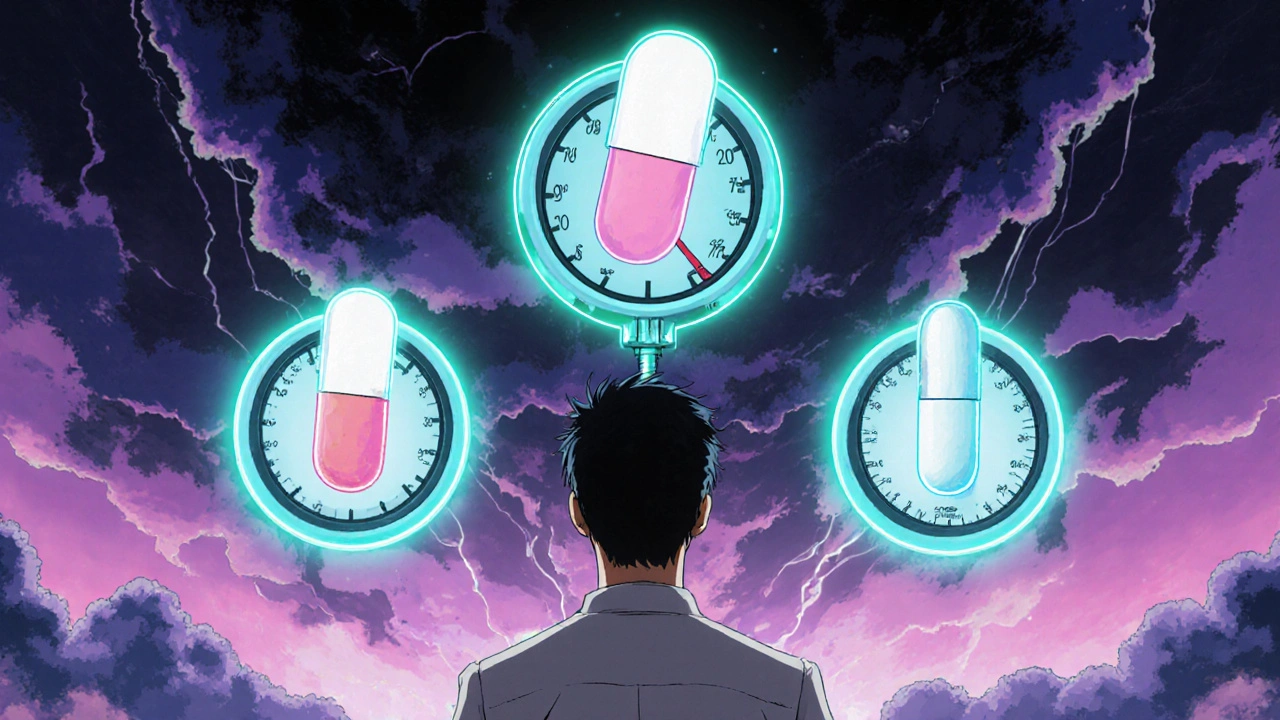
What Real People Say
A 32-year-old teacher with ADHD switched from Adderall to Clonidine after experiencing heart palpitations. She says: "It didn’t make me feel "on" like Adderall, but I could sit still in class. The drowsiness was rough at first, but I adjusted. Now I take it at night - helps me sleep and keeps my blood pressure down. I’d never go back to stimulants."
A 58-year-old man with resistant hypertension tried Clonidine after three other meds failed. "It dropped my BP from 160/95 to 125/80. But I felt like I was walking through peanut butter. Too tired to play with my grandkids. I switched to lisinopril - same results, no fog."
Parents of kids with ADHD often report Clonidine helps with meltdowns and aggression. But many switch to guanfacine within a year because "my kid doesn’t nap at 3 p.m. anymore."
How to Decide What’s Right for You
There’s no one-size-fits-all. Here’s a simple decision checklist:
- Is your main issue ADHD or high blood pressure? If it’s BP, try ACE inhibitors or beta-blockers first.
- Do you struggle with sleep or agitation? Clonidine or guanfacine might help.
- Have you tried stimulants? If yes and they didn’t work or caused side effects, try Strattera or guanfacine.
- Can you handle daily drowsiness? If not, avoid Clonidine. Try extended-release guanfacine instead.
- Are you on multiple meds? Clonidine can interact with antidepressants, sedatives, and blood pressure drugs. Talk to your pharmacist.
Never stop Clonidine cold turkey. Taper slowly over 2-4 weeks under medical supervision. A sudden stop can cause rebound hypertension - a medical emergency.
Final Thoughts
Clonidine isn’t the best choice for everyone, but it’s not obsolete either. For some, it’s the only thing that brings calm without stimulants. For others, it’s a temporary bridge to something better.
Ask yourself: Are you taking it because it works - or because you haven’t explored other options? Talk to your doctor about guanfacine, Strattera, or standard blood pressure meds. You might find relief without the fog.
Can you take Clonidine and Adderall together?
Yes, some doctors prescribe them together - usually a low-dose stimulant for focus and Clonidine to reduce side effects like insomnia or irritability. But this combo can lower blood pressure too much. Blood pressure and heart rate must be monitored closely. Never combine them without medical supervision.
Is Clonidine better than guanfacine for ADHD?
For most people, guanfacine is better. It lasts longer (once daily), causes less drowsiness, and has fewer blood pressure drops. Clonidine works faster but requires multiple doses and causes more fatigue. Guanfacine is now the preferred alpha-2 agonist for ADHD in children and adults.
Does Clonidine cause weight gain?
Clonidine doesn’t directly cause weight gain, but the drowsiness and fatigue it causes can lead to less movement and more snacking. Some people report increased appetite, especially in children. Weight gain is more common with long-term use and often improves after switching to another medication.
How long does it take for Clonidine to work for ADHD?
Many people notice reduced impulsivity and better focus within 3-5 days. Full effects usually appear after 2-4 weeks. Unlike stimulants, which work in hours, Clonidine builds up slowly. Patience is key.
What happens if you stop Clonidine suddenly?
Stopping Clonidine abruptly can cause a dangerous spike in blood pressure, rapid heartbeat, anxiety, tremors, and headaches - sometimes called "rebound hypertension." In rare cases, it can trigger a stroke or heart attack. Always taper off slowly under a doctor’s care, usually over 2-4 weeks.
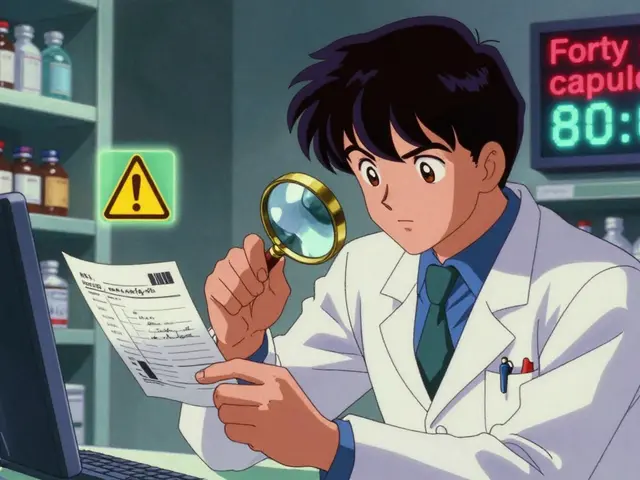
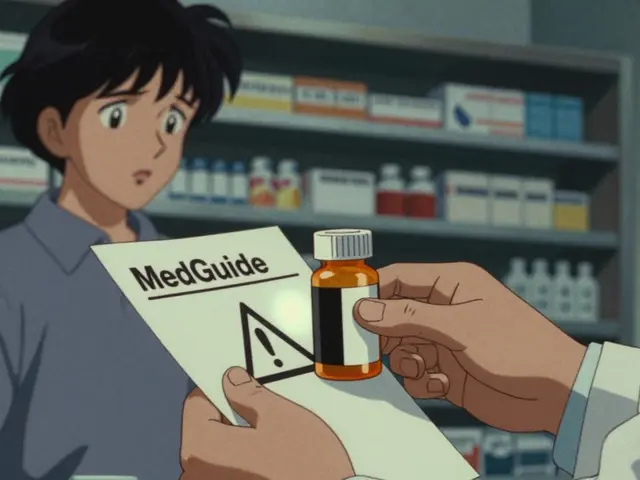
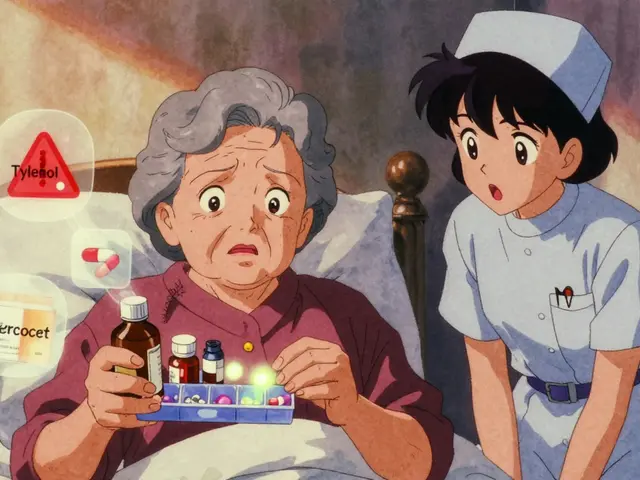
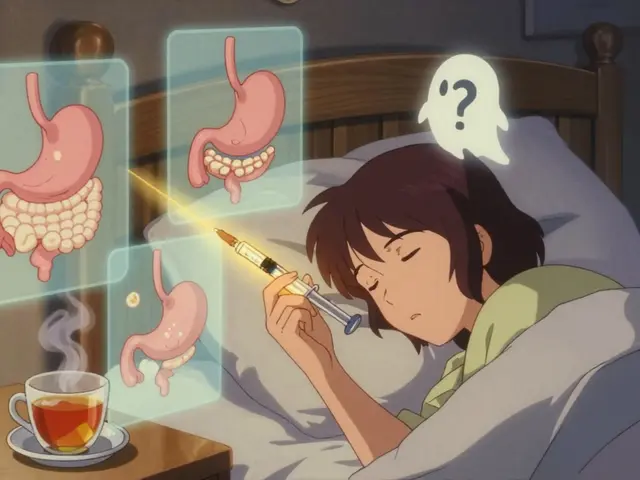
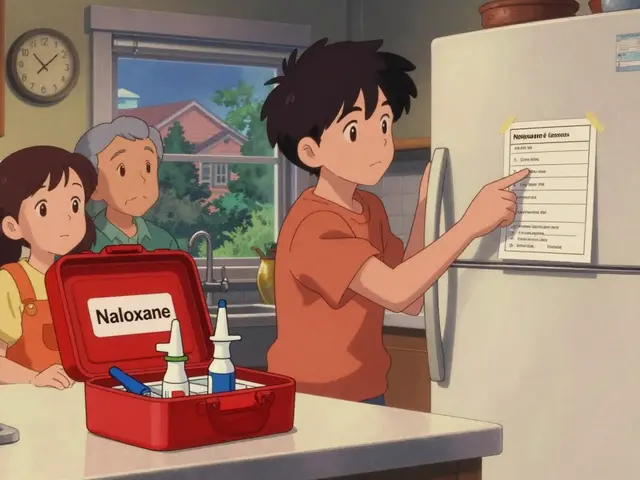
12 Comments
Man I was on clonidine for a year after my heart started acting up from adderall and let me tell you it was like walking through molasses
But i could finally sit through meetings without fidgeting so i kept it
Then my doc switched me to guanfacine and its like i got my brain back
No more 3pm naps and my bp stayed down
Best decision ever
Clonidine is a last resort drug for people who cant handle real medicine
Its like using duct tape to fix a leaky pipe
Yes it stops the drip but you still got a broken system
Guys if you need something for adhd take stimulants or strattera
Clonidine is for when everything else failed and your doctor is out of ideas
Im so glad this post exists because i spent months feeling like i was broken for needing clonidine
Turns out its not weird to want something that helps you sleep and focus without jitters
Youre not failing if stimulants dont work for you
Youre just finding your own path
And thats okay
Really okay
It is imperative to underscore that clonidine is not indicated as a first-line agent for the management of either attention deficit hyperactivity disorder or essential hypertension
Its pharmacodynamic profile is suboptimal for chronic administration
Rebound hypertension upon discontinuation represents a clinically significant risk
Alternative pharmacotherapeutic regimens demonstrate superior long term outcomes
One must exercise due diligence in therapeutic selection
i took clonidine for a few months for adhd and honestly it was just me sitting there feeling like a zombie
but i did notice my anxiety dropped a bit
so i started taking it at night just for sleep
now i take guanfacine er in the morning and its a night and day difference
still a little tired but not like i need to nap after brushing my teeth
also no more dry mouth that felt like chewing sand
Of course they dont mention the big pharma conspiracy behind pushing guanfacine
Its all about the patent extensions and insurance kickbacks
Clonidine is cheaper and works just fine if you dont let the system brainwash you
They want you addicted to expensive brand name drugs so you never question it
Wake up people
My daughter was on clonidine for ADHD and it helped with meltdowns but she was sleeping through her school bus
We switched to guanfacine and now she’s up, focused, and even joined the debate team
It’s not magic but it’s way better than feeling like a zombie all day
And no i’m not paid to say this i’m just a mom who cried happy tears
clonidine is a mind control drug planted by the government to make people docile
they use it in prisons and schools because it makes you too tired to rebel
the drowsiness is not a side effect its a feature
and dont get me started on how they hide the truth about rebound hypertension
they dont want you to know how dangerous it is
you think your doc cares about you
they get kickbacks from big pharma
ask yourself why guanfacine is so much more expensive
Everyone keeps talking about guanfacine like its the holy grail
But have you tried it when you have low blood pressure already
I went from 110/70 to 85/55 in two days
Had to crawl to the ER because i saw stars just standing up
Clonidine at least lets me keep my bp stable
Yeah im tired but at least im not passing out
So dont tell me what works for you works for everyone
Some of us are just too fragile for your perfect meds
Clonidine? Thats what you take when you dont believe in ADHD
Its just a sedative disguised as medicine
Why not just drink a six pack and call it a day
At least then you get to party
And why do people act like this is some deep medical decision
Its just people trying to medicate normal behavior
Maybe if you just exercised more or ate less sugar you wouldnt need this
Or maybe you just need to grow up
People who take clonidine for ADHD are just lazy
They dont want to deal with the discipline it takes to focus without drugs
And now they want to compare it to real treatments
Its pathetic
You dont get to call yourself functional when you need a sedative to sit still
Grow some willpower
Or at least stop pretending its a medical issue
Just want to say thank you for writing this
My brother is on clonidine for ADHD and opioid withdrawal after his accident
He was in so much pain and anxiety he couldnt even talk
Clonidine gave him back his calm
Its not perfect but its the only thing that lets him breathe
So dont let anyone tell you its not valid
Sometimes medicine isnt about being the best
Its about being enough